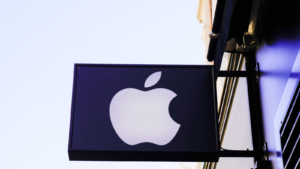Although S&P 500 buybacks declined in 2023, companies continued to favor buybacks over dividends. According to S&P Dow Jones Indices, buybacks declined from $922.7 billion in 2022 to $795.2 billion but surpassed dividends of $588.2 billion.
For companies generating plenty of free cash flow, buybacks might be the best use of cash. They offer flexibility to the company and some tax advantages to investors. What’s more, if done below intrinsic value, buybacks create long-term value for shareholders.
These three extremely profitable businesses have spent lots of free cash flow on buybacks in recent years. Each has shrunk its share count by more than 30% since 2014. Today, they are top buyback stocks that continue to use repurchases to shrink share count, thereby boosting EPS and value per share.
AutoZone (AZO)

This auto parts retailer has been one of the top buyback stocks due to its commitment to share buybacks. Since 2014, it has reduced its outstanding shares by 48%. Moreover, it was among the top repurchasers of 2023, buying back shares worth $3.6 billion and reducing its share count by 6.3%.
The stable demand for auto parts supports AutoZone’s (NYSE:AZO) free cash flow generation through all economic cycles. When consumers face tight budgets, they keep their old vehicles for longer which adds to repairs. On the other hand, during good times, people drive more. This means their cars frequently need more repairs due to wear and tear.
These cycle-agnostic characteristics explain why auto parts retailers have been some of the best compounders. Notably, alongside peer O’Reilly Automotive (NASDAQ:ORLY), AutoZone achieved same-store sales growth in 2008 and 2009 during the financial crisis. Another tailwind has been the consolidation of the fragmented auto parts retail industry as more independent shops close, ceding share to larger chains.
AutoZone continues to exhibit positive same-store sales growth. In Q2 fiscal year 2024, it reported total same-store sales growth of 1.8%, achieving 4.9% sales growth. So far, it has repurchased $1.7 billion in FY2024. Given its buyback history, expect more returns of excess cash.
Home Depot (HD)

If you are a do-it-yourself enthusiast, you must be familiar with Home Depot (NYSE:HD). It is the leading home improvement retailer in the U.S. by sales. The retailer has benefited from a red-hot housing market over the past decade, particularly from the splurge on home improvement projects during the pandemic.
Home Depot’s revenues are evenly split between professional contractors and do-it-yourself homeowners. Its focus on the home remodel market has been a growth tailwind, with revenues growing from $83 billion in FY2014 to $152 billion in FY2023. Meanwhile, net income surged from $6.3 billion to $15.1 billion.
Leveraging this surge in profitability, Home Depot has been repurchasing its shares at a fast clip. Although revenues declined in 2023 after the pandemic remodeling boom decelerated, it returned $8 billion in repurchases in FY2023. And management still expects to return excess cash to shareholders, making it one of the top buyback stocks.
Over the long term, Home Depot will profit from an aging housing stock. This will spur more renovations and repairs, boosting demand for the building products and equipment it sells. Moreover, remodel demand will remain elevated, with homeowners having locked in record low mortgage rates and rising home equity.
Apple (AAPL)

In 2012, CEO Tim Cook called Warren Buffet asking for advice on what Apple (NASDAQ:AAPL) should do with its increasing cash hoard. As Cook stated in this CNBC interview, Buffet was straightforward.
“Let me just cut through it. If you believe your stock is undervalued, you should buy your stock,” said Buffet.
Ever since, Apple has had the largest repurchase program ever, spending $658 billion over the last ten years.
It’s worth noting that Apple is one of the most profitable companies on the planet. Its iPhone and iMac products and other accessories have a cult-like following. Furthermore, it has built a high-margin services business around these hardware products. As a result, Apple generates more free cash flow than it knows what to do with.
In FY2023, the company reported total revenues of $383 billion and net income of 96.9 billion. Additionally, it generated free cash flow of $82 billion using $76.6 billion to buy back its common stock. Repurchase activity continued in Q1 FY2024, with the company buying back 118 million Apple shares worth $20.5 billion.
Apple will update its buyback plans in the upcoming earnings report and another substantial repurchase is likely. Although the stock is facing China-related revenue headwinds, an upgrade cycle triggered by an AI iPhone could be the next catalyst. For now, it’s one of the best buyback stocks, with repurchases supporting AAPL stock price.
On the date of publication, Charles Munyi did not hold (either directly or indirectly) any positions in the securities mentioned in this article. The opinions expressed in this article are those of the writer, subject to the InvestorPlace.com Publishing Guidelines.
Charles Munyi has extensive writing experience in various industries, including personal finance, insurance, technology, wealth management and stock investing. He has written for a wide variety of financial websites including Benzinga, The Balance and Investopedia.
